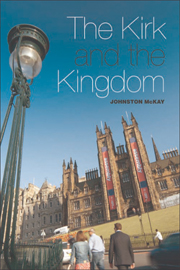1 - Signs and Signals
The Stirrings of Social Criticism
Published online by Cambridge University Press: 05 August 2013
Summary
There is something wrong in the structure of society, and in the laws which regulate the intercourse of nations.
Revd Dr Robert Burns, 1841There was nowhere more hungry at the beginning of the hungry forties than the town of Paisley, the fifth-largest town in Scotland. In the previous twenty years its population had risen by almost 30 per cent to over 60,000, putting an impossible strain on the system of poor relief when the local economy took a downturn, which it had been threatening to do from 1837 and did dramatically in 1841. Sixty-seven out of one hundred and twelve merchant and manufacturing firms failed. Weavers looked to Friendly Societies in times of hardship, but in 1841 almost half of the Friendly Societies collapsed. In the winter of 1841–2, 15,000 men, representing well over 25 per cent of the town's population, were considered destitute. A deputation of civic leaders, led by Provost John Henderson, who was editor of a Chartist newspaper, The Glasgow Post and Reformer, and the Revd Dr Robert Burns, minister of St George's Church in the town, travelled to London and met members of the government: the Prime Minister, Sir Robert Peel; the Home Secretary, Sir James Graham; and Lord Stanley, the Colonial Secretary. According to Peel's biographer Douglas Hurd, this meeting ‘lodged Paisley in the mind of ministers’. The number of the town's destitute had risen by 2,000.
- Type
- Chapter
- Information
- The Kirk and the KingdomA Century of Tension in Scottish Social Theology 1830-1929, pp. 5 - 25Publisher: Edinburgh University PressPrint publication year: 2011



